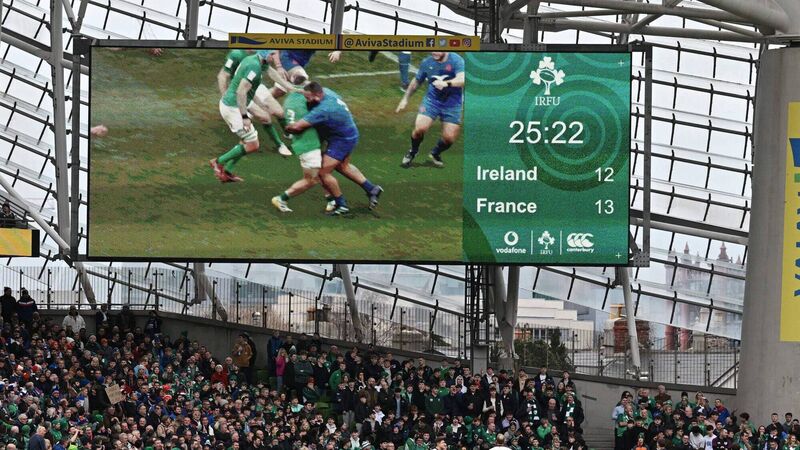Tommy Martin: Rugby on the brink of domination and doom

DOMINATION AND DOOM: English referee Wayne Barnes studies the screen after a tackle from France's prop Uini Atonio on Ireland's hooker Rob Herring. Pic: Paul ELLIS / AFP
Where are we now with the rugby?
I say this having just recovered equilibrium from events in Dublin last Saturday. Rugby’s detractors are rightly sceptical of the sport’s taste for the bombastic, but it was hard not to reach for the meatier adjectives after Ireland’s win over France.









